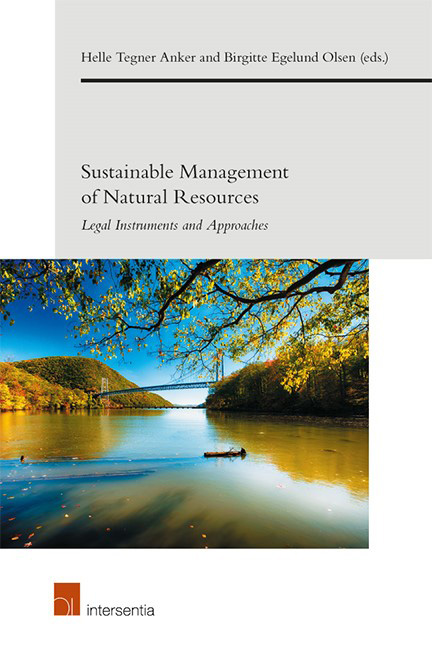Book contents
- Frontmatter
- Contents
- PART I INTRODUCTION
- PART II SUSTAINABILITY IN EU AND INTERNATIONAL LAW
- Chapter 2 Sustainable Management of Natural Resources by the EU
- Chapter 3 Squaring the Circular Economy: Towards More Coherence in the EU Sustainable Management of Natural Resources
- Chapter 4 Judicial Review of the Environmental Performances of the EU Agricultural Policy
- PART III SUSTAINABLE MANAGEMENT OF WASTE
- PART IV ENVIRONMENTAL AND CLIMATE LITIGATION
- PART V ECOSYSTEM APPROACHES AND ADAPTIVE MANAGEMENT
- PART VI SUSTAINABLE RESOURCE MANAGEMENT: SPECIFIC ISSUES 193
Chapter 3 - Squaring the Circular Economy: Towards More Coherence in the EU Sustainable Management of Natural Resources
from PART II - SUSTAINABILITY IN EU AND INTERNATIONAL LAW
Published online by Cambridge University Press: 31 January 2019
- Frontmatter
- Contents
- PART I INTRODUCTION
- PART II SUSTAINABILITY IN EU AND INTERNATIONAL LAW
- Chapter 2 Sustainable Management of Natural Resources by the EU
- Chapter 3 Squaring the Circular Economy: Towards More Coherence in the EU Sustainable Management of Natural Resources
- Chapter 4 Judicial Review of the Environmental Performances of the EU Agricultural Policy
- PART III SUSTAINABLE MANAGEMENT OF WASTE
- PART IV ENVIRONMENTAL AND CLIMATE LITIGATION
- PART V ECOSYSTEM APPROACHES AND ADAPTIVE MANAGEMENT
- PART VI SUSTAINABLE RESOURCE MANAGEMENT: SPECIFIC ISSUES 193
Summary
ABSTRACT
The sustainable management of natural resources by the EU is in our own interest and also contributes to global sustainable development. What we import can have serious consequences in exporting countries. Such external effects of EU natural resources use have been discussed at length by the EU institutions, but a clear and coherent policy framework has not emerged. Instead, an ad hoc approach has been followed. Over time, the EU has thus developed separate policy regimes with distinct features for numerous individual natural resources. Two such regimes, regarding forestry and fisheries, are examined in this contribution. The manner in which they aim at ensuring that only legally harvested natural resources are put on the EU market or imported has turned out to be quite different. While the specific characteristics of the natural resources in question do not seem to play a decisive role here, it does seem that other factors do. A prominent factor seems to be the fear of violating rules of international trade law. Another factor could be that the EU has an exclusive competence to adopt fisheries measures, but not when it comes to forestry products. In order to enhance the effectiveness of the individual regimes, it is concluded that it is worth striving for enhanced coherence of the EU's policy regarding sustainable management of natural resource.
INTRODUCTION
The European Union (EU) is highly dependent on the import of resources from third (non-EU) countries. This brings economic advantages for those countries, but some of the EU imports have environmental and social disadvantages for the producing countries that stand in the way of their sustainable development. They can have negative economic consequences where natural resources (like timber, minerals and fish) are illegally harvested and payment of taxes is avoided. These negative consequences for third countries of EU production and consumption processes can also affect the Union itself, notably through rising greenhouse gas emissions due to illegal logging or burning of forests to clear land for oil palm plantations. They can also contribute to destabilisation and increased migration to Europe. Only by paying attention to the external consequences of EU use of natural resources, for instance in terms of environmental effects, rights of indigenous persons and their livelihoods and food security, can the EU ensure that it does not add to the problems of developing countries and instead contribute to building more sustainable and resilient societies.
- Type
- Chapter
- Information
- Sustainable Management of Natural ResourcesLegal Instruments and Approaches, pp. 29 - 48Publisher: IntersentiaPrint publication year: 2018



